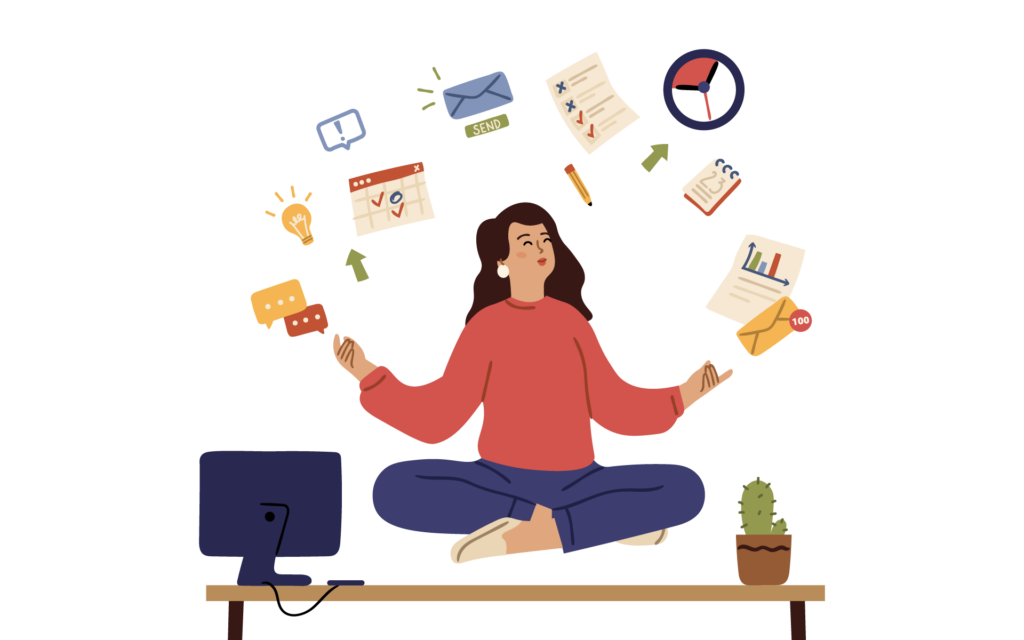5 Minutes of Mindfulness Brings Actual Advantages, In response to Science

Whereas on a mindfulness retreat, Eli Susman, a PhD Candidate in psychology on the College of California (UC) Berkeley, was shocked by the day’s schedule. The emphasis at Plum Village—the monastery of Zen Grasp Thich Nhat Hanh—is on aware dwelling, which is totally different from different retreat facilities that embody lengthy durations of sitting meditation.
As the times glided by, Susman felt a rising want for a extra formal apply and determined to take a seat in meditation underneath a tree. Earlier than he knew it, three hours had handed.
Relaying this to a buddy (and monk) later that day within the monastery’s tea home, the monk’s eyes widened after which he smiled. “How about three breaths?” he requested Susman. “That’s all it is advisable to tune into the current second.”
“That basically struck me,” says Susman. “What if that’s actually sufficient to make a distinction in individuals’s lives?”
When it got here time to launch his PhD analysis program, Susman determined to discover the concept of quick practices, or “micropractices.” These temporary interventions are designed to make use of probably the most potent components of a apply to satisfy the wants of individuals in much less time and at a decrease price. “A number of the greatest obstacles to partaking with, and benefiting from, contemplative practices are growing the behavior of doing it, and likewise having the time to do it,” he says.
Proof means that on the subject of meditation, quick bursts could also be simply as useful as longer stretches. One randomized managed trial discovered that 4 shorter 5-minute mindfulness practices have been simply as efficient as 4 20-minute practices in bettering melancholy, nervousness, and stress. One other trial discovered that extra frequent every day life mindfulness apply (being aware throughout regular actions similar to exercising, working, or doing family chores) helped to buffer ongoing stress.
Love Thyself (in 20 seconds a day)
Susman was eager to analyze a micropractice of self-compassionate contact, a facet of aware dwelling that he believed might have a big affect on psychological well being. Proof has proven that self-compassionate contact can decrease salivary cortisol ranges (a measure of stress within the physique) and could also be as efficient as receiving a hug from one other particular person.
In his research, Susman’s staff included 135 undergraduate college students and randomly assigned them to 2 teams. The primary group was taught by video to apply self-compassionate contact for 20 seconds a day. This often concerned putting a hand on the guts house and one other hand over the stomach, adopted by pondering sort, compassionate ideas towards oneself.
“However they have been additionally advised they might use different types of contact,” says Susman. “What was most vital was that the strategy of contact supported them in feeling compassionately towards themselves.”
The second group adopted the identical video procedures, besides the scholars got totally different directions that concerned a finger-tapping train and weren’t advised to make use of self-compassionate ideas.
For the common faculty scholar who participated within the research, Susman discovered no variations between the intervention and management teams on measures for self-compassion, progress mindset, optimistic have an effect on (the scientific time period for ‘feeling good’), perceived stress, and psychological well being points.
“When you meditate 5 minutes a day, every single day, it’s lots higher than meditating half an hour as soon as per week.” -Natalie Karneef, meditation instructor
Nonetheless, amongst those that practiced the intervention every day (38%), the researchers discovered larger enhancements in self-compassion, stress, and psychological well being relative to these assigned to the management group.
The staff was very shocked by the dimensions of the impact, which was akin to outcomes from different trials that studied time-intensive interventions. Susman factors out that quick apply occasions do add up over weeks or months.
Why You Ought to Attempt a Aware “Micropractice”
This discovering ties in with the philosophy of “marginal good points,” typically utilized in high-performance sports activities or enterprise. The thought is that tiny margins of enchancment in each step of the method can result in bigger good points over time. One meta-analysis of over 200 trials of mindfulness-based packages discovered that there was no proof that bigger doses are extra useful than smaller doses—it was larger frequency and consistency that appeared to supply higher advantages.
Licensed meditation instructor Natalie Karneef agrees with this. “I feel simply pausing and popping out of the hamster wheel that almost all of us are on throughout the day is a extremely good apply,” she says. “When you meditate 5 minutes a day, every single day, it’s lots higher than meditating half an hour as soon as per week.”
Karneef additionally feels that the compassion aspect of aware dwelling typically will get left behind in a tradition that she says could be very uncompassionate. “The way in which that mindfulness is usually taught is a bit like a sport or a self-discipline. You’ll be able to focus or nonetheless your thoughts however with out compassion, it turns into one other factor we’re making an attempt to excel at,” she says.
“Meditation shouldn’t be an answer for capitalism,” provides Karneef. If it’s too tough to quiet the thoughts for 20 minutes a day, Karneef says this isn’t a person subject that must be individually solved. “That’s a structural and systemic subject that we have to acknowledge as a much bigger drawback.”
Mindfulness alone, at any size of apply, shouldn’t be essentially advisable as a sole resolution for extra critical psychological well being points. “Brushing your enamel shouldn’t be a alternative for seeing the dentist, and doing micropractices wouldn’t change getting extra complete psychological well being help,” says Susman.
Each Susman and Karneef level out that meditation and self-compassion are difficult for many individuals due to the character of contemporary life. It could be unrealistic to count on that we are able to counter the onslaught of data and exercise we face every day with any quantity of sitting meditation apply, which is why regularity is vital.
“Each size and sort of apply is vital—I actually consider that,” says Karneef.






